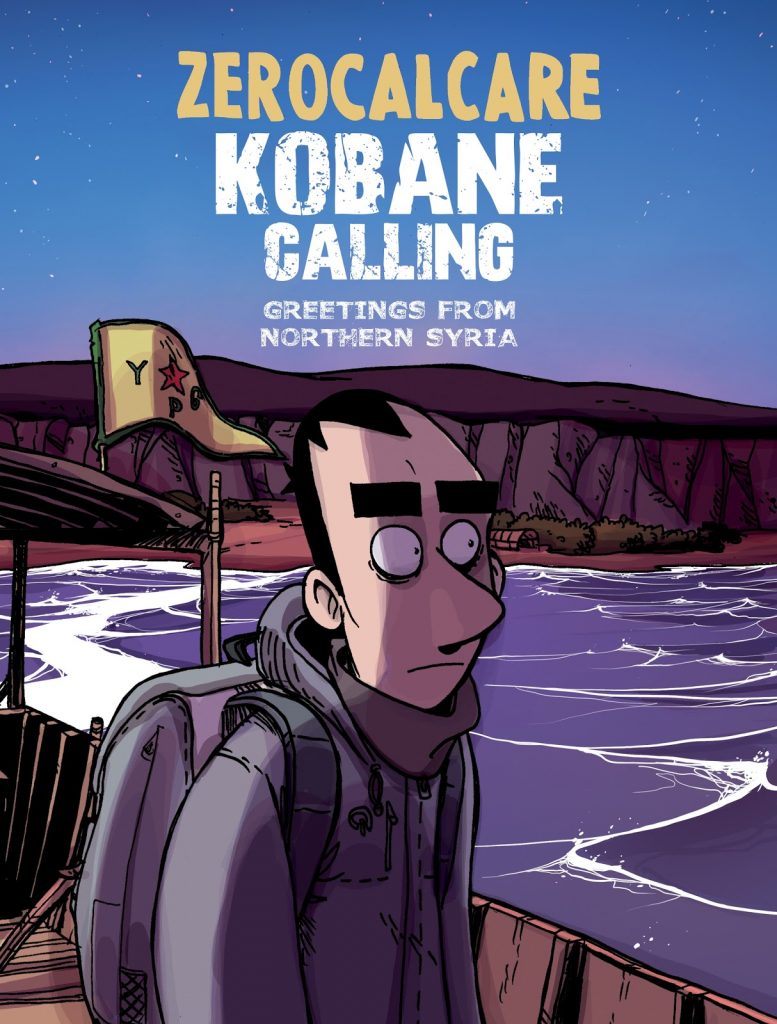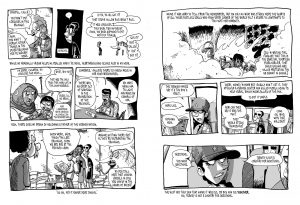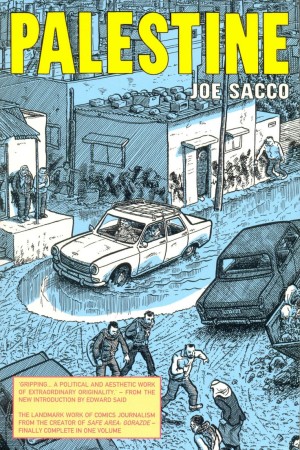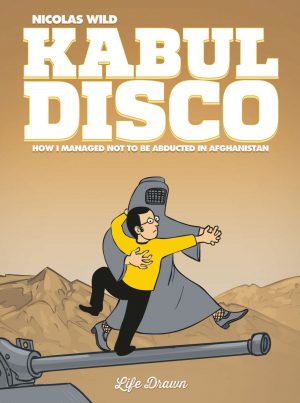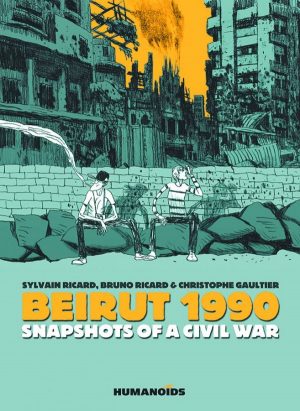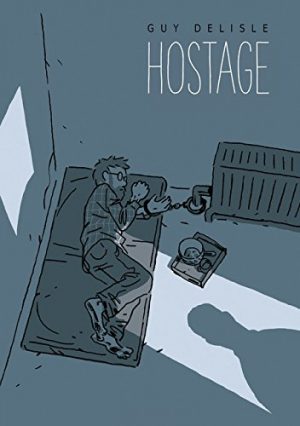Review by Ian Keogh
Any book or film needs a good opening, something that immediately captivates. Italian cartoonist Zerocalcare (Michele Rech) achieves this with the matter of fact listing of sounds accompanying different guns and missiles heard daily by the innocent townspeople trapped in a warzone.
Kobane lies on the Syrian border with Turkey as part of territory Kurdish separatists consider should be within the independent Kurdish state they desire. When much of Syria was occupied by ISIS, Kobane fell within the area the Kurds occupied for protective purposes.
Zerocalcare’s 2104 trip to the region is inspired by the Kurdish creation of an egalitarian society, but initially given no great foundation. It makes Kobane Calling seem like voyeuristic war tourism, and although reasons are gradually bolstered that feeling never entirely disappears. He passes on a narrative that contradicts the good vs evil representation most news outlets presented in North America and Europe about the situation in Syria and Iraq post-ISIS. There’s no whitewashing the atrocities committed by ISIS, but it rams home how too many people died due to political conveniences on the part of Turkey and the USA in particular. It’s a rapid learning curve for Zerocalcare, and he copes by falling back on humour, noting his ignorant shortcomings, and recasting protagonists in allegorical terms (ISIS as the relentless villains from Fist of the North Star). There’s a greater ideological commitment to a second trip.
Rather than remain in the background and let others explain, Zerocalcare’s form of reportage places him at the centre, and the weakest areas of Kobane Calling concern his life and experiences. Because he’s a really expressive cartoonist, the pages have a gloss, but his manner frequently casts him as a distraction, and sometimes as an irritant, such as not bothering to learn about structures he draws. A sequence about attempting to cross the Iraqi border feels very much a first world problem, complaints about the difficulty sitting poorly alongside the daily lives of locals on a scale starting with indignity and rising to atrocity. By the constant jokes about chai and lentils, the self-absorption has worn thin, and it detracts from the powerful, emotional scenes, making these almost something to be earned.
When Zerocalcare’s own experiences are shunted into the background over the final third, Kobane Calling springs into educational life. While it should come as no surprise, even in a warzone some people are only concerned about their own needs and convenience, the enlightenment coming from an interviewed businessman who resents the Kurdish checkpoints as life was simpler when ISIS just charged him to pass through. The truths of others spill out from the point Kobane is reached, after years of war not as imagined, and as Zerocalcare finally begins to see things from a viewpoint other than his own. He’s very much influenced by Kurdish fighters, but their cause has long been an inconvenience for world powers, with the resulting distortion of their views, and his inner dialogue initiated by what he’s seen offers realism and understanding.
Two postscripts supply more recent perspective, although as is noted, the allegiances are constantly shifting, and this is before the US dumped the Kurds once they’d served their purpose, as if such deceit is never remembered. Kobane Calling eventually becomes the informative book you’d want, but takes too long to reach there. Less whittering in a slimmer book would have been ideal.
